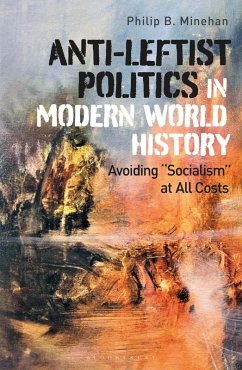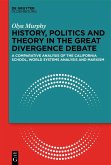Systemic and political hostility against the 'left', real and contrived, has been a key, yet under-recognized aspect of the history of the modern world for the past two hundred years. By the 1820s, the new, exploitative and destabilizing character of capitalist industrial production and its accompanying market liberalizations began creating necessities among the working classes and their allies for the new, self-protective politics of 'socialism'. But it is evident that, for the new economic system to sustain itself, such oppositional politics that it necessitated had to be undermined, if not destroyed, by whatever means necessary. Through the imperialism of the later 19th century, and with significant variations, this complex and often highly destructive dialectical syndrome expanded worldwide.
Liberals, conservatives, extreme nationalists, fascists, racists, and others have all repeatedly come aggressively and violently into play against 'socialist' oppositions. In this book, Philip Minehan traces the patterns of such hostility and presents numerous crucial examples of it: from Britain, France, Germany and the United States; the British in India; European fascism, the United States and Britain as they operated in China and Indochina; from Kenya, Algeria and Iran; and from Central and South America during the Cold War.
In the final chapters, Minehan addresses the post-Cold War, US-led triumphalist wars in the Middle East, the ensuing refugee crises, neo-fascism, and anti-environmentalist politics, to show the ways that the syndrome within which anti-leftist antagonism emerges, in its neoliberal phase since the 1970s, remains as self-destructive and dangerous as ever
Liberals, conservatives, extreme nationalists, fascists, racists, and others have all repeatedly come aggressively and violently into play against 'socialist' oppositions. In this book, Philip Minehan traces the patterns of such hostility and presents numerous crucial examples of it: from Britain, France, Germany and the United States; the British in India; European fascism, the United States and Britain as they operated in China and Indochina; from Kenya, Algeria and Iran; and from Central and South America during the Cold War.
In the final chapters, Minehan addresses the post-Cold War, US-led triumphalist wars in the Middle East, the ensuing refugee crises, neo-fascism, and anti-environmentalist politics, to show the ways that the syndrome within which anti-leftist antagonism emerges, in its neoliberal phase since the 1970s, remains as self-destructive and dangerous as ever









